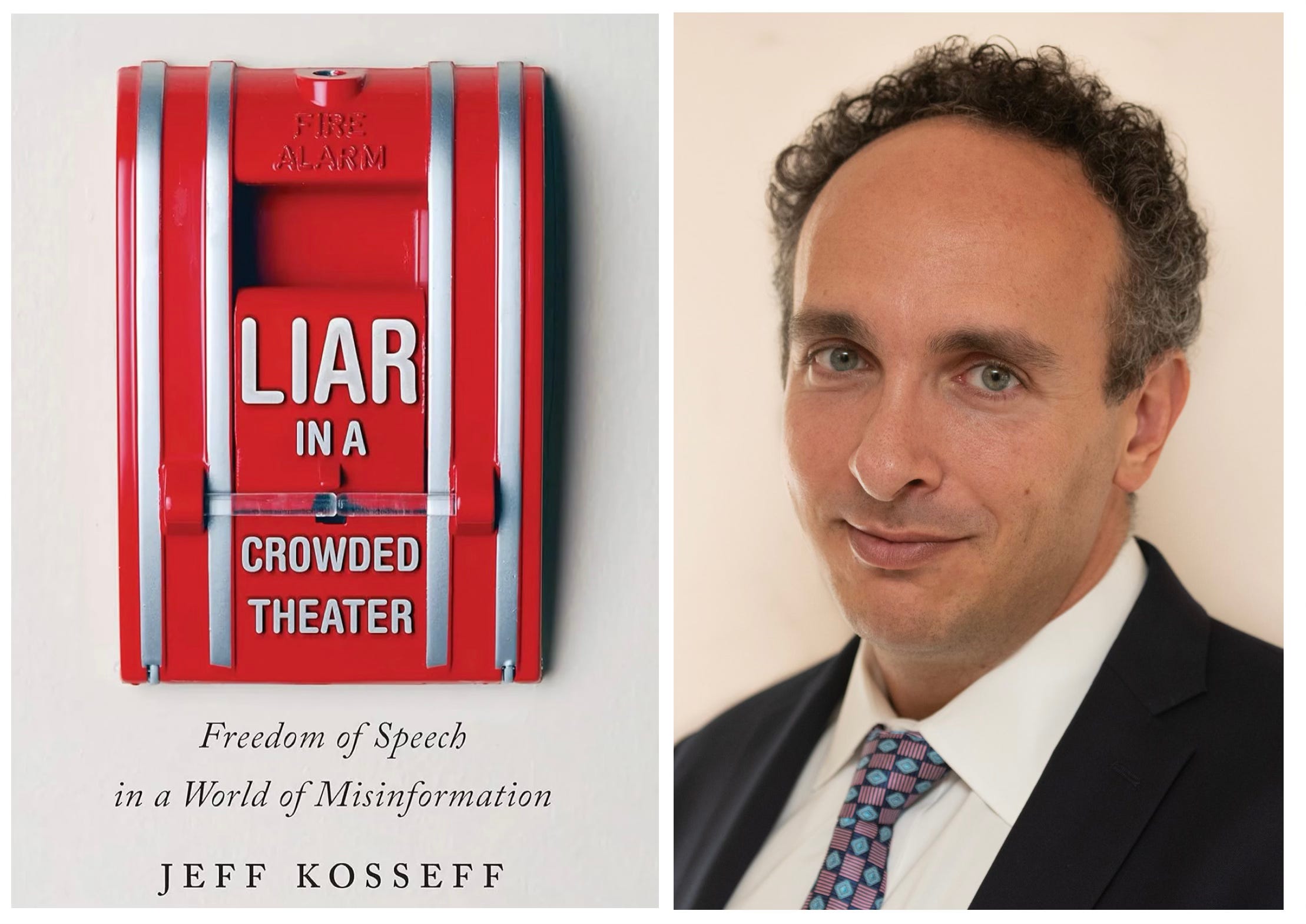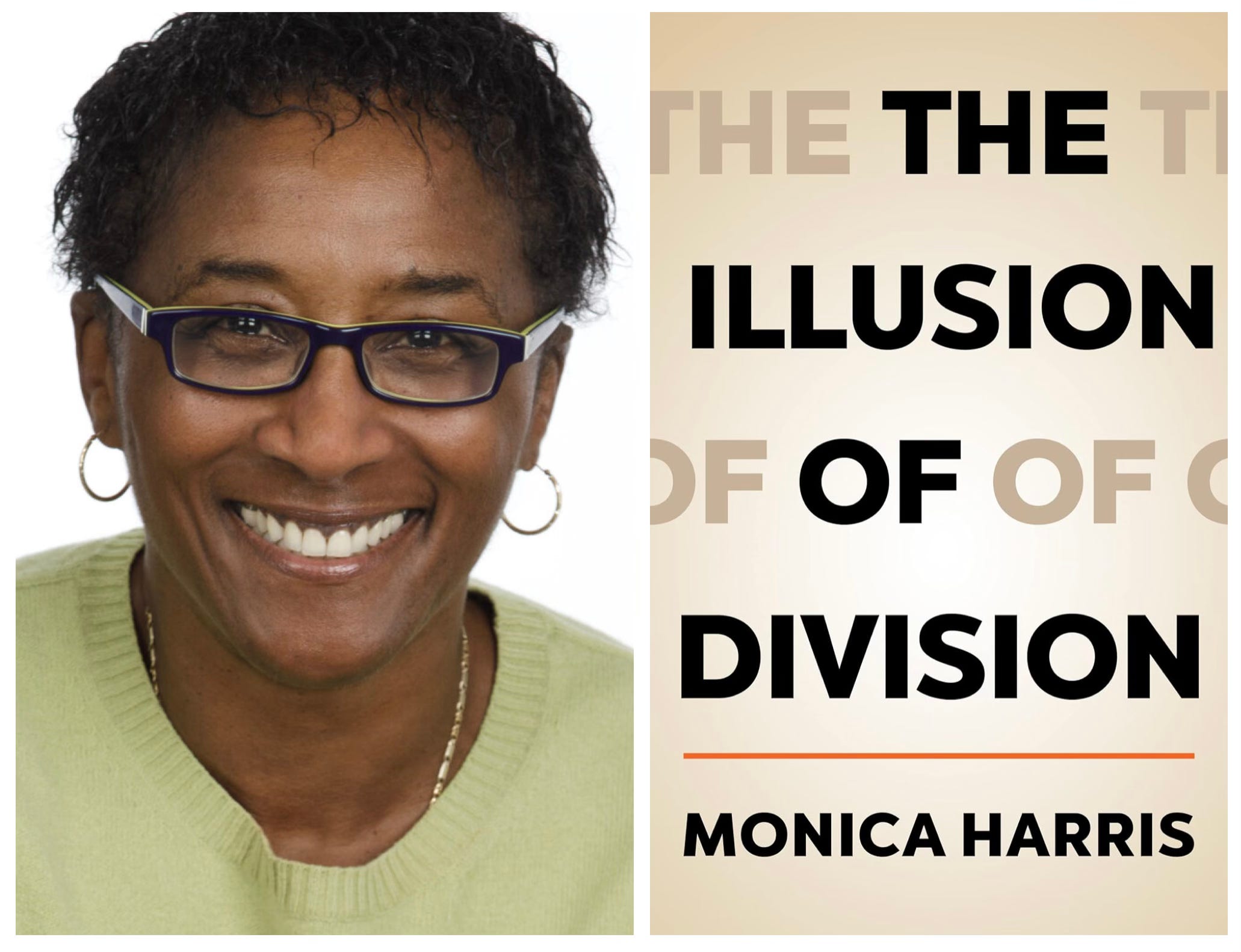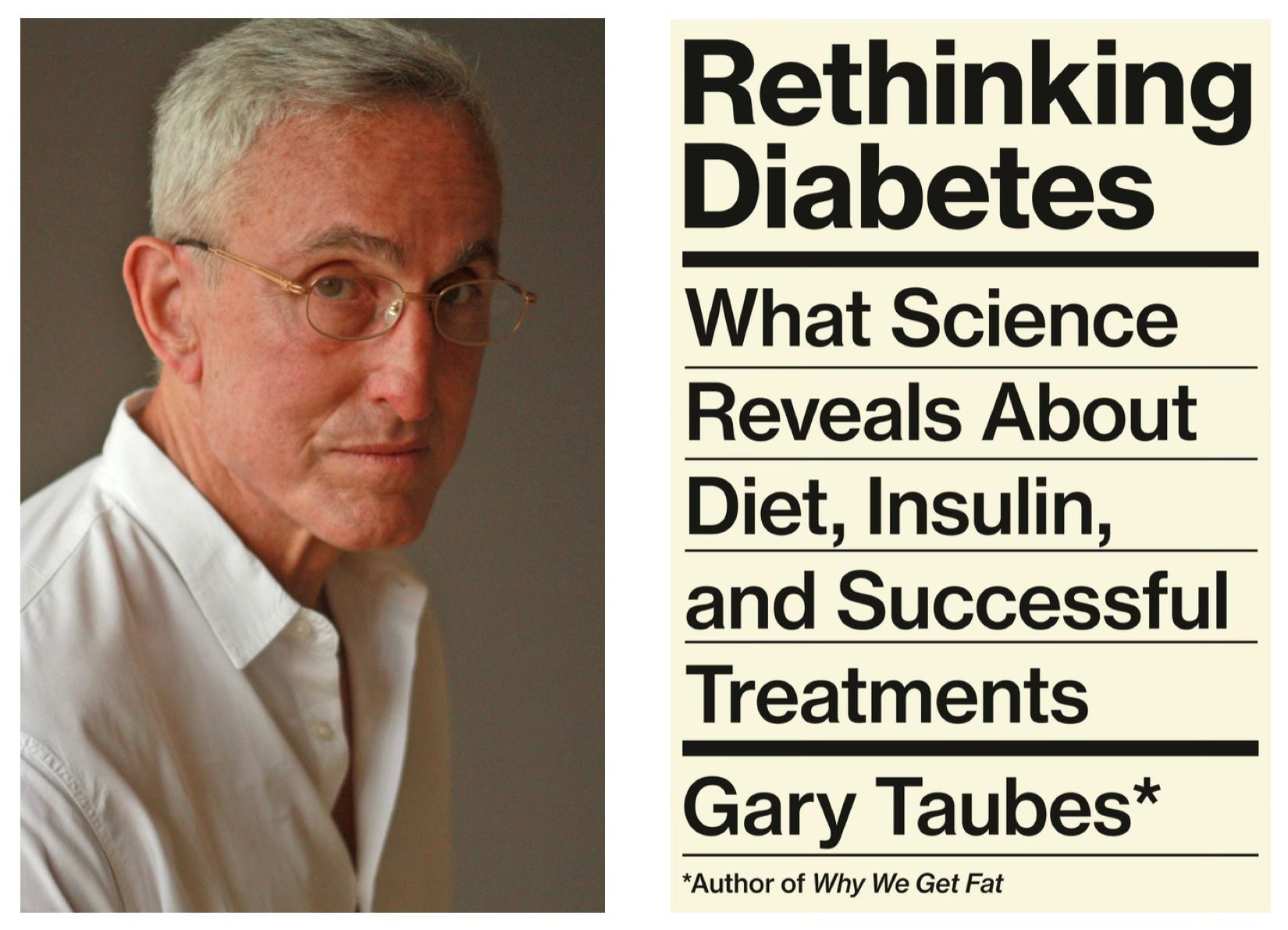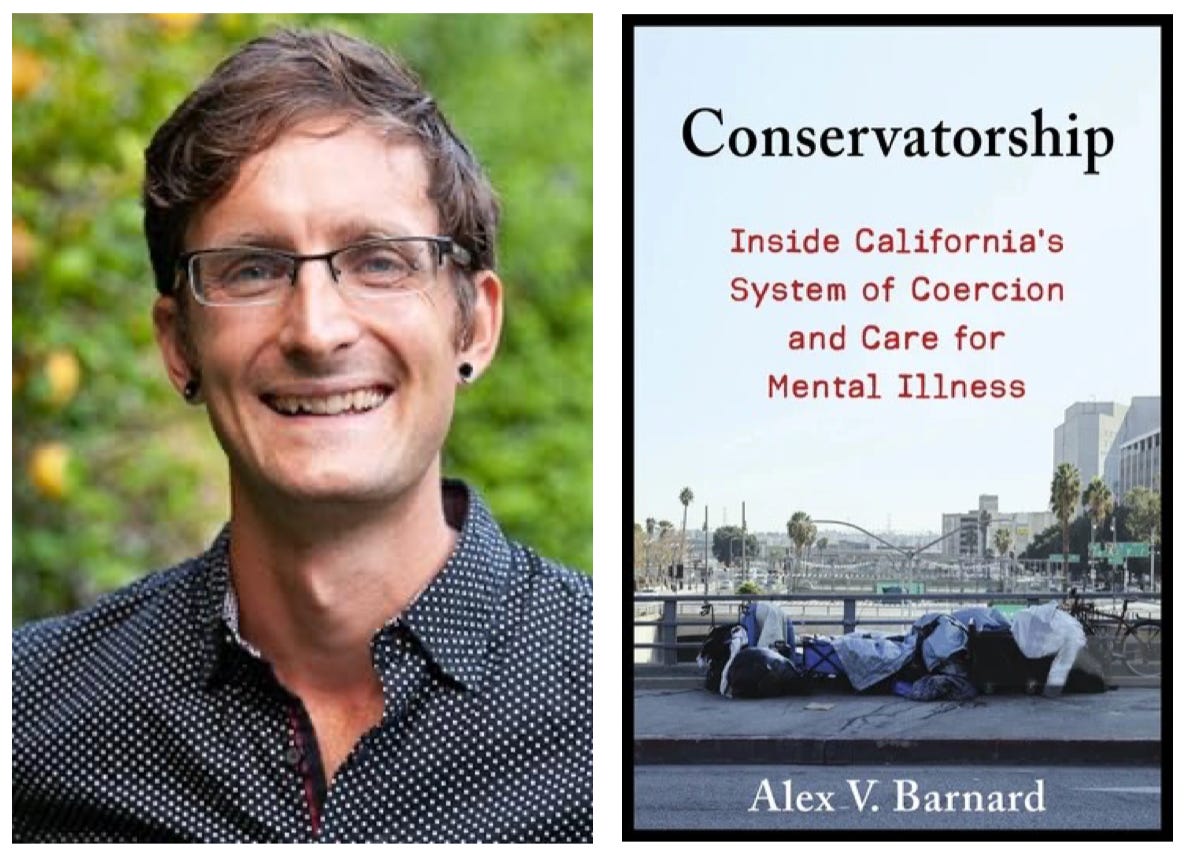Discover Public
Public

85 Episodes
Reverse
This is a free preview of a paid episode. To hear more, visit public.substack.comJean Twenge is a psychologist and author of a series of important and influential books, including Generations: The Real Differences Between Gen Z, Millennials, Gen X, Boomers, and Silents―and What They Mean for America's Future (2023); iGen: Why Today's Super-Connected Kids Are Growing Up Less Rebellious, More Tolerant, Less Happy--and Completely Unprepared for Adulthood--and What That Means for the Rest of Us (2018); and The Narcissism Epidemic: Living in the Age of Entitlement (2009).Twenge is also sometimes a coauthor to Jonathan Haidt, whose new bestselling book The Anxious Generation argues that society must significantly restrict social media use among children and adolescents. Social media is creating anxiety and depression, reducing resiliency and risk-taking, and contributing to the coddling and closing of the American mind, Haidt, Twenge, and many other psychologists believe.I spoke to Twenge recently to ask her about how entitlement, a key characteristic of narcissism, appears to be a key element in the rising demand for censorship. She agreed that it was. But Twenge also pointed out that “in most times and places in world history free speech has not really been a thing.”
This is a free preview of a paid episode. To hear more, visit public.substack.comAnybody who has been canceled for holding disfavored views knows how lonely and depressing the experience can be. It often means watching trusted people in positions of authority turn into bullies and, worse, watching friends and colleagues turn into cowards.That dark reality makes it all the more important to understand those people who do the right thing and stand up for what’s right. One of them is James Esses, a British attorney in his early thirties who was kicked out of a training school for therapists for raising concerns about the medical mistreatment of children confused about their gender.As far as cancelations go, Esses’s wasn’t particularly dramatic or noteworthy. He wasn’t a famous actor, musician, or writer. He was just someone who, early in his career, decided he didn’t want to be a lawyer anymore and instead wanted to help people with mental health problems.Given that protecting the institutions of civilization requires more ordinary people, without the resources of famous artists and authors, to stand up against bullies, we should seek to understand why they do it so that we might encourage more of it.Esses’ journey began in 2020 when he was in his third and final year of getting his therapist’s degree from Metanoia Institute and volunteering for a charity to staff a mental health hotline.“I was on the cusp of setting up my own private practice,” he says. “I had children coming through on this helpline saying they were trapped in the wrong bodies and that they wanted to use breast binders and take puberty blockers. They were younger and younger.”The charity told Esses “to kind of just affirm” the pseudoscientific and dehumanizing idea that some children are born into the wrong bodies.“Many had come across this stuff online,” he said. “Many of them were being taught it in school. Children have been taught from a very young age that it's possible to be born in the wrong body and that you can essentially change your sex.”Esses started reading about children being medicalized and given drugs and surgeries. “I couldn't believe what I was reading. We were damaging, irreparably, children in the name of an ideology that isn't founded in evidence or fact. I couldn't believe it."“The message from the training institutions and our regulatory bodies as therapists was, essentially, affirm,” Esses explained. “Don't explore. Don't challenge. Affirm transitioning, no matter what. And to me, that flew in the face of proper therapeutic ethics and the Hippocratic oath. So I couldn't simply abide by that. I felt compelled to start speaking out about it.”Esses cofounded with some colleagues a new group, Thoughtful Therapists. “I wrote a petition to the UK government,” he said. “I started engaging on social media for the first time about this, doing some interviews, and writing some articles. And then, out of the blue, one day in May, I received an email from my institution telling me that they were expelling me with immediate effect.”Esses says the experience was humiliating. “It was a two-paragraph email that simply said that there had been some complaints about my writing and my advocacy and that I had brought them into disrepute, and so they were expelling me with immediate effect.“They blocked my email and my access to the university Intranet portal,” he said. “And they had, on Twitter, publicized the fact that they had expelled me.”Esses was shattered. “I was in an awful state. In a single email, my entire future life plans went up in smoke. I hadn't done anything wrong. All I had done was raise concerns essentially about child safeguarding.”Esses had done the right thing and was now paying a heavy price. “For the first for the first couple of days, I didn't want to get out of bed. You know, I was really that low.”
This is a free preview of a paid episode. To hear more, visit public.substack.comA few weeks after the October 7 Hamas terrorist attacks in Israel, the Director of the FBI said, “Our most immediate concern is that violent extremists—individuals or small groups—will draw inspiration from the events in the Middle East to carry out attacks against Americans going about their daily lives. That includes not just homegrown violent extremists inspired by a foreign terrorist organization but also domestic violent extremists targeting Jewish or Muslim communities.”And indeed, in the three months after October 7, the Anti-Defamation League recorded 3,291 anti-Jewish incidents, which was a 361-percent increase compared to the same period one year prior.But the terrorist attacks the FBI Director warned about never arrived, and all but 56 of those 3,291 incidents were nonviolent, consisting of hate speech, vandalism, and rallies. And ADL has inflated its recorded number of nonviolent incidents by counting certain political speech as hate speech.We should, of course, condemn those 56 violent incidents, all forms of hateful rhetoric, and all genuine expressions of support for terrorism. And we must remain vigilant against terrorist attacks like the kind committed on September 11 and in the 2019 terrorist attacks on two Muslim mosques in Christchurch, New Zealand.But fighting terrorism is different from hyping it. What led to the 9/11 terrorist attack was the failure of the US intelligence agencies to communicate with each other, not any downplaying of terrorism, according to the bipartisan 9/11 Commission.The fact of the matter is that terrorism is incredibly rare and on the decline. Most of it is in the Middle East and South Asia, with tiny amounts in North America and countries like New Zealand.In truth, most forms of violence have been declining in Western nations for centuries, even millennia.To the extent governments and NGOs are recording more so-called “hate speech,” it’s because people today are far more likely to label speech “hateful” than were people just a few decades ago. By almost every measure, our tolerance of racial, sexual, and religious minorities is at an all-time high.And we should also be very wary of governments hyping terrorism since it leads to abuses of power. After 9/11, the hyping of terrorism fears allowed the US to invade a country we never should have invaded, occupy a country we shouldn’t have occupied, use kidnapping and torture as standard operating procedures, and violate fundamental civil liberties.Now, it appears that the US and other governments around the world are hyping hate in order to weaponize the government against their political enemies.
This is a free preview of a paid episode. To hear more, visit public.substack.comMany journalists, university professors, and Democrats say we must change how we think about the First Amendment for the Internet age. Maybe the government had no role in regulating speech before there existed social media platforms like X and Facebook, where “peer-to-peer misinformation” thrives. But now, given the threat such misinformation poses to democracy, we need the government to restrict what can be said on the Internet, claim Stanford researchers, the New York Times, and the Biden administration.All of that is dangerous nonsense, according to Jeff Kosseff, a cybersecurity law professor at the U.S. Naval Academy and author of a new book, Liar In A Crowded Theater. “Starting about a century ago,” he told me in a new podcast, “the Supreme Court gradually developed robust [free speech] protections for all but a handful of exceptions…. And I think that, for the Internet, it needs to be the same, where we start off with the premise that this speech is not subject to regulation.”
This is a free preview of a paid episode. To hear more, visit public.substack.comEuropeans are free to speak their mind as they wish, most of them believe. They can express their views on controversial political and social issues on social media platforms from Facebook to X.But all of that may soon change. Europe is implementing the Digital Services Act, which is using the exact same censorship system we exposed as part of the Twitter Files, notes Michigan State University legal scholar Adam Candeub.The EU is saying, “‘You must get trusted flaggers,’” Candeub said in a podcast with me this morning. “‘You must tag and flag all harmful information, which is illegal under any EU state.’ That includes hate speech, incitement, misinformation and disinformation… The EU bureaucrats have already made threatening noises toward Elon [Musk].”You might think you shouldn’t worry about this because it’s happening in Europe. European nations have a long history of censoring their citizens far more than the US.But Candeub says that the EU may end up censoring the whole world.“What's disturbing is that now the platforms will have two choices,” he explained. “They'll be able to have one EU-compliant platform worldwide. Or they'll have an EU and American Facebook. It seems like the cheaper version is the former version.”
This is a free preview of a paid episode. To hear more, visit public.substack.comGoogle CEO Sundar Pichai today addressed the public upset with its AI chatbot, Gemini, for its political bias. “I want to address the recent issues with problematic text and image responses in the Gemini app (formerly Bard),” he wrote. I know that some of its responses have offended our users and shown bias—to be clear, that’s completely unacceptable, and we got it wrong.”But Google’s bias has been on public display since August 2017, when Pichai fired a Google employee named James Damore for writing a ten-page memo criticizing the company's diversity, equity, and inclusion (DEI) policies, particularly its “Bias-Busting” training.And the partisan bias of Google was expressed a few days after voters elected Donald Trump as president during an “all hands” employee meeting. “It’s been an extraordinarily stressful time for many of you,” Pichai said to Google employees. “I certainly find this election deeply offensive,” said Google cofounder Sergey Brin, “and I know many of you do too.” One Google executive nearly started crying when recounting that Trump won. “It was this massive kick in the gut that we were gonna lose,” she said. “And it was really painful.”Pichai struck a more neutral political tone in comparison to his colleagues. “We are in a democratic system,” he said. “I think part of the reason the outcome ended up the way it is is [because] people don't feel heard across both sides.”But after a Google employee suggested that Trump won due to “misinformation” and “fake news coming from fake news websites being shared by millions of low-information voters on social media,” Pichai specifically pointed to the use of artificial intelligence to achieve the aim of countering “misinformation.”“I think our investments in machine learning and AI is a big opportunity here,” he said. Machine learning is a form of AI.Pichai then suggested that Google was already manipulating search results.
This is a free preview of a paid episode. To hear more, visit public.substack.comLast year, Google CEO Sundar Pinchai went on a media offensive to reassure the public and policymakers that he was being responsible with Artificial Intelligence, or AI. “You will see us be bold and ship things,” he told the New York Times in March, “but we are going to be very responsible in how we do it.”But the AI product Google shipped, Gemini, turned out to have a strong racial bias. When asked to depict the Pope, Vikings, and America’s founding fathers, Gemini refused to depict them as white. Gemini responded with misinformation when asked about this misrepresentation, claiming that it “aimed to provide a more accurate and inclusive representation of the historical context.” To its credit, Google took the image creation feature of Gemini offline, saying it was not “working as intended.” And, to be fair, tech firms often ship new products aware that there are programming bugs.But Gemini remains up and running and is a source of misinformation and, arguably, “hate speech.”
This is a free preview of a paid episode. To hear more, visit public.substack.comPoliticians and activists alike have warned of a looming climate catastrophe for decades. “Biden urged to declare climate change a national emergency,” reported NBC last year. “Climate Changes Threatens Every Facet of U.S. Society, Federal Report Warns,” announced Scientific American.Cambridge University climate scientist Mike Hulme disagrees. “Declaring a climate emergency has a chilling effect on politics,” he tells Public. “It suggests there isn’t time for normal, necessary democratic process.”Climate activists may dismiss Hulme as a “climate denier,” but he agrees the planet is warming due to human activities and specifically says we should prepare for more heat waves. Moreover, Hulme’s credentials are undeniably impressive. He is a Professor at the University of Cambridge and founding Director of the Tyndall Centre for Climate Change Research. Hulme has advised everyone from the United Nations to the UK Government and earned a personalized certificate from the Nobel Peace Prize committee for his work with the UN’s Intergovernmental Panel on Climate Change (IPCC).Now, in his new book, Climate Change Isn’t Everything, Hulme strongly denounces “climatism,” which he describes as the “unyielding belief that stopping climate change is the pre-eminent yardstick against which all policies must be measured.”
This is a free preview of a paid episode. To hear more, visit public.substack.comOn Monday, Alex Gutentag and I reported that the Federal Bureau of Investigation (FBI) is misrepresenting the location of the alleged bomb allegedly found at the Republican National Committee (RNC) headquarters on January 5, 2021, and that little about the alleged bomb scare makes any sense.Today, I sat down with Briahna Joy Gray and Robby Soave of “The Rising” to discuss the issue. They asked me hard questions, and I was glad to have the dialogue.
This is a free preview of a paid episode. To hear more, visit public.substack.comIn 2020, progressives rode a wave of righteous anger toward what many believed would be decisive and lasting change. The pandemic ensured a captive audience; America could no longer look away.So why did a year that saw the largest combined protests in the history of this country fail to deliver substantive change, let alone the radical shift progressives were banking on?Essayist and author Freddie deBoer parses these disappointments in his 2023 book, “How Elites Ate the Social Justice Movement.” “People didn't appear to want to confront the fact that nothing of substance happened and were eager to just move on,” deBoer said of his motivations for writing the book. “I said it’s really important we think about this… I wanted to force that conversation.”
This is a free preview of a paid episode. To hear more, visit public.substack.comRob Henderson is a writer and academic perhaps best known for popularizing the concept of “luxury beliefs.” Over the past several years, he’s become an influential commentator, both in mainstream media and with his own Substack.Now, he has a much-anticipated book coming out from a major publisher. “Troubled: A Memoir of Foster Care, Family and Social Class,” recounts his tumultuous childhood and unlikely path to elite universities, and expands on ideas – about class, social psychology and culture – he developed while studying at Yale and Cambridge.His profile and social media following all but guarantee an audience. And yet, bookstores in progressive cities like San Francisco and New York won’t host his book events.Don’t worry about Rob, the book will do fine. But it’s bizarre that liberals aren’t more open to his ideas, especially since he spends a lot of time thinking about how social and cultural trends impact poor and working class people.Perhaps the reason Henderson is such an insightful critic is that he traverses boundaries that remain invisible to some, intractable to others. Moving through class divides, from the foster system, blue-collar America and the military to the most prestigious institutions, he is both outsider and insider. From this vantage point, he asks us to think deeply about the meaning of privilege.
This is a free preview of a paid episode. To hear more, visit public.substack.comLast week, former Speaker Nancy Pelosi accused pro-Palestinian protesters who demonstrated outside her San Francisco home of being Russian stooges. She even urged the FBI to investigate them.Obviously, the FBI can’t legally investigate an allegation for which there is zero evidence. And to be clear, Pelosi offered zero evidence.Is it possible that Russian interests have funded pro-Palestine activists? Sure, just like it’s possible that Russian interests have funded Nancy Pelosi. But there’s no evidence. And it’s a dangerous abuse of power for a politician to call for the FBI to investigate her critics based on nothing but wild accusations.What was Pelosi thinking? You might say she just lost her cool. But it’s noticeable that the Democrats made Russia the new bogeyman starting in 2016, during the election campaign of Donald Trump.Democrats made various accusations of Trump’s collusion with Russia. All turned out to be false and misleading. They suggested a bank in Russia had wired money to the Trump campaign. They claimed Trump’s campaign was working with the Russians on the release of embarrassing emails.But two Justice Department investigations, one by Robert Mueller and the other by John Durham, concluded that there was no illegal collusion. Durham believed the FBI should never have begun an investigation of Trump and Russia in the first place.After this, Democrats used Russia constantly to dismiss issues they didn’t want to deal with. After the New York Post published its mid-October 2020 article about Hunter Biden’s laptop, which revealed a massive influence-peddling scheme involving the whole family, dozens of former CIA and intelligence officials said it had “all the markings of a Russian information operation, which then-presidential candidate Joe Biden referred to in a debate with Trump in 2020.Attacking one’s opponents as being backed by Putin and aligned with Russia dates back even to earlier in 2015 and 2016. Back then, opponents of the Brexit referendum in the UK claimed that supporters of Brexit were pro-Putin.Today, the accusation is everywhere. Government-funded think tanks in North America and Europe accuse critics of the West’s support for Ukraine in its war against Russia of being Russian agents. And a few days ago, Correctiv, an influential “anti-disinformation” website in Germany, which both the German government and George Soros’s foundation finance, falsely suggested that protesting German farmers are pro-Putin or supported by Putin.There is a good psychological reason for Democrats to focus on Russia.
This is a free preview of a paid episode. To hear more, visit public.substack.comRope, not the wind industry, killed the critically endangered North Atlantic right whale found dead last Monday, claim scientific organizations, the US government, and the news media. “This case highlights the ongoing threat right whales and other whale species have been facing from fishing gear entanglements for decades,” said Amy Knowlton of the New England Aquarium, which is working with the North Atlantic Oceanic and Atmospheric Administration (NOAA) to identify the cause of death.But neither Knowlton nor anyone else knows if the rope killed the three-year-old female whale, who is known only as “5120.” Whales can live long lives with a rope embedded in their bodies. Indeed, nearly 90 percent of right whales have been entangled in rope at least once, and others as often as nine times. This young whale was first observed to have rope around her tail in August 2022.It’s true that, in the past, rope entanglements were the primary cause of death for North Atlantic right whales, and late today, NOAA reported that “The necropsy showed no evidence of blunt force trauma.”But NOAA did not address whether high-decibel sonar, measured at illegal levels last year, played a role. Nor did NOAA establish a cause of death. “Cause of death is pending further histological and diagnostic testing of collected samples, which can take weeks to complete.As such, it is inappropriate for the New England Aquarium, which is participating in NOAA’s investigation of the cause of the whale’s death, to suggest that rope entanglement killed the whale before NOAA has completed its investigation.And this is particularly inappropriate since the threats to the whales have increased as boat traffic related to offshore wind development increased.
This is a free preview of a paid episode. To hear more, visit public.substack.comHave you ever heard of the “Five Eyes” nations? I confess that I hadn’t until I started covering censorship and other governmental abuses of power last year.But it turns out to be something really important. The Five Eyes refers to intelligence agencies in the US, UK, Australia, New Zealand, and Canada, which have collaborated on spying and intelligence sharing since World War II.Now it appears Canada spread disinformation to other Five Eyes nations after Canada’s Justin Trudeau government used the same faked intelligence to illegally frame protesters as violent extremists.
This is a free preview of a paid episode. To hear more, visit public.substack.comIn 2010, the family of Monica Harris’s partner held a reunion in southeastern Montana. “She says, ‘Hey, babe, would you ever want to go?’ And I don't know about you, but Montana was one of these places that had always been on my bucket list. It's Big Sky country, you know? So I said, ‘Sure, let's go. And we were there for a week, and it was just — I think it was life-changing.”Monica is a Harvard-educated entertainment lawyer, author of The Illusion of Division, and the new Executive Director of the Foundation Against Intolerance and Racism (FAIR), which advocates for Martin Luther King’s vision of a color-blind society. The organization, on whose advisory board I sit, is currently supporting a former DEI executive who says she was fired for questioning woke ideology. I interviewed Monica last week for this podcast.Instead of going back to L.A., Harris and her wife drove through Montana. “We're passing all these little towns, and I'm wondering, ‘What’s that town like?’ Population 2,000 — or 200. ‘What's that about?’ We got off at one of them. They were holding a chili cook-off. I thought, ‘My God! A chili cook-off at Montana! What's that about?’“We're creeping through town. There are no black people to be found. Just white guys in pickup trucks with shotguns in the back and the big cowboy hats and boots and women looking like they’re from 30 or 40 years ago. I wanted to check it out. But there's a part of me that was kind of afraid. You see a lot of white guys with guns in their trucks and you're thinking, ‘Was this the right move? Am I going to be a statistic? Is someone going to jump out at us as we're walking back to our car?’“We walk up to the woman who's selling the tickets to the cookoff and I'm bracing myself. She looks at us and she says, ‘Y'all here for the cookoff?’ I'm like, ‘Yeah, we are.’ ‘Well, get yourself a ticket. Settle on in. You're going to have lots of fun.’ It was like something out of a movie. It was great. And we spent like a couple of hours there. Everything was fine. That was the first shift in my thinking. The first clue I got was that, ‘Huh. This isn't what I expected. I wonder what else isn't what I expect?
This is a free preview of a paid episode. To hear more, visit public.substack.com“People get fat because they eat too many calories.” “A calorie is a calorie.” “Saturated fats are bad.”America’s leading dietary experts, the US government, and food manufacturers agreed on the above for decades. During that time, rates of overweight, obesity, and diabetes skyrocketed. Either the experts are wrong or people didn’t follow the advice of experts. Two journalists, Gary Taubes and Nina Teicholz, say the experts are wrong. Saturated fats are good, not bad, and a calorie is not a calorie. The body doesn’t process a 60-calorie serving of bacon the same way it does a 60-calorie slice of cake. Obesity and diabetes are a result of a hormone imbalance caused by eating more carbohydrates than the body can handle, they say. When we eat carbohydrates, they believe, the body works to keep the fat locked away in storage. The best diet is a high-fat, high-protein, and low-carb diet known as the keto diet.Naturally, many in the diet establishment, including at academic institutions like Berkeley and Harvard, have taken issue with the conclusions of Taubes and Teicholz. Mainstream experts argue that Taubes and Teicholz have misunderstood or misrepresented the science and downplayed the difficulty of sticking to the keto diet.Teicholz and Taubes have responded at length to their critics at their terrific Substack, Unsettled Science. And, now, Taubes is out with a response to his critics in the form of a major new book, Rethinking Diabetes: What Science Reveals About Diet, Insulin, and Successful Treatments. At 750 pages, Taubes clearly intended for this to be the best available review of the scientific evidence and history published to date. Any serious person who disagrees with Taubes’ unorthodox views on diet and diabetes will need to contend with it. I interviewed Taubes about it for today’s podcast. We talked about his critics and the challenge of sticking to keto, including for me. He told me that the book on diabetes flowed out of his 2016 book, The Case Against Sugar. “The liver has never evolved to see the doses of fructose that they get today… Biochemistry in the 60s and 70s demonstrated how fructose could cause this condition called ‘insulin resistance,’ which is the fundamental disorder of type 2 diabetes.”
This is a free preview of a paid episode. To hear more, visit public.substack.comThe US Department of Justice has charged over 1,200 people with federal crimes related to the January 6, 2021 riot. In order to convict those individuals, the DOJ has relied heavily on 14,000 hours of surveillance video as well as cell phone data, some of which somebody leaked to the New York Times.“The data we were given showed what some in the tech industry might call a God-view vantage of that dark day,” wrote Charlie Warzel and Stuart A. Thompson in 2021 in the New York Times. “It included about 100,000 location pings for thousands of smartphones…While there were no names or phone numbers in the data, we were once again able to connect dozens of devices to their owners, tying anonymous locations back to names, home addresses, social networks and phone numbers of people in attendance.”The New York Times authors had less cell phone data than what the FBI had available to it. And yet, amazingly, the cell phone and video surveillance data of the suspect who committed the worst crime on January 6 are, according to the FBI, corrupted and/or missing.And what was the worst crime? The attempted assassination of Vice President-elect Kamala Harris while she was at the Democratic National Committee.In other words, while FBI had cell phone data for the January 6 protesters, none of whom tried to kill anyone, it doesn’t have the cell phone data for the one person who did.And while FBI had 14,000 hours of high-quality surveillance video for the January 6 protesters, it somehow does not have any video of the suspect actually leaving the bomb. Nor does it have high-quality video, including from the best angles, of the suspect.That's an unbelievable coincidence.And it gets worse.Last year, the person who was in charge of the FBI investigation, the head of the Washington Field Office, admitted to Rep. Thomas Massie that the Vice President’s life was never at risk.
This is a free preview of a paid episode. To hear more, visit public.substack.comFor more than 30 years, progressives and conservatives have differed over how to think about mentally ill homeless people. Progressives have argued that the fundamental problem is the lack of funding for mental health services, while conservatives have argued that the problem is the unwillingness of progressives to mandate care.Now, a new book, Conservatorship: Inside California’s System of Coercion and Care for Mental Illness, by New York University sociology professor Alex Barnard, who I interviewed for this week’s podcast, argues that progressives and conservatives are both partly right and partly wrong. Progressives are right that America has far fewer psychiatric beds per capita than other developed nations. But conservatives are right that we also mandate psychiatric care less than many other developed nations.Barnard’s insight is that if you improve mental health care, fewer people require hospitalization, which is the most expensive part of the system. Witness the decline of psychiatric beds in Europe in general and the Netherlands in particular. As such, Barnard’s argument scrambles the older liberal-conservative divide on mentally ill homelessness. If we had a better care system, we wouldn’t have to mandate care as much. But if it were easier to mandate care, people with mental illness would not become so sick or homeless at such a high rate.
This is a free preview of a paid episode. To hear more, visit public.substack.comIf you watch the mainstream media, you might think that what happened on January 6th, 2021 was a coup attempt. But what if that’s not at all what happened?The dictionary definition of a coup is a “violent overthrow or alteration of an existing government by a small group.”There’s no doubt that the chaos on January 6 was a bad day for the United States. But it was a bad day that would have been prevented had Congressional leaders granted the request by the Capitol police for National Guard backupAnd, more importantly, the people who walked through the Capitol were protesting what they thought was a stolen election. They weren’t planning to take over the government and run it from the Rotunda. Let’s be real: an unarmed group of rioters in the most armed country in the history of the world could never take over the government. Coups require physically overpowering the existing government. That’s why they almost always involve the military. Contrast what happened on Jan. 6 to what happened on September 11th. No, not September 11th here in the United States in 2001, but September 11, 1973, in the Latin American nation of Chile.On that day, a faction in the military launched a coup against the elected leader Salvador Allende, resulting in the installation of General Augusto Pinochet as president. Allende took his own life as his presidential palace was being bombed from the air. The toppling of his government ushered in nearly two decades of brutal military dictatorship.Or take what happened in Iran in 1953.
This is a free preview of a paid episode. To hear more, visit public.substack.comDid you see what happened last Monday night after Donald Trump won a landslide victory in Iowa?Rachel Maddow announced that MSNBC would not be covering Trump’s victory speech, and CNN cut away after just a few minutes of it. Why was that?
























